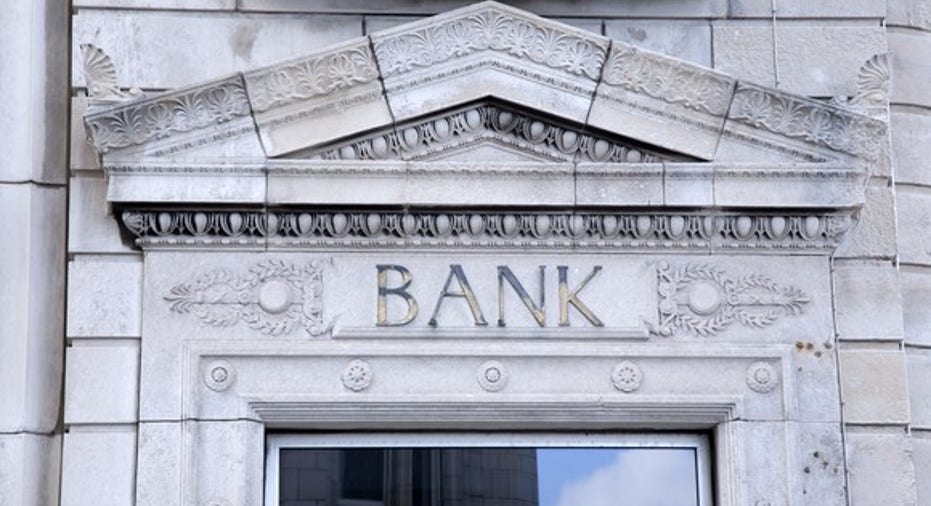Trump Preparing To Replace Top Banking Regulator

The Trump administration, looking to make its first major imprint on U.S. banking regulators, is preparing to replace Comptroller of the Currency Thomas Curry as chief overseer of federally chartered banks, according to people familiar with the matter.
President Donald Trump could soon replace Mr. Curry with an acting head of the agency, who would serve until a new comptroller is confirmed, these people said. The change could happen as soon as this week, they said.
A White House spokeswoman declined to comment, as did a spokesman for Mr. Curry.
The comptroller oversees hundreds of bank supervisors stationed inside large U.S. financial firms, making the job one of the most powerful U.S. bank regulators. Mr. Trump has said he wants to remove regulations affecting banks, but his influence has been limited so far: Appointees of President Barack Obama still serve in every major bank regulatory post, including at the Federal Reserve and Consumer Financial Protection Bureau.
Mr. Curry was appointed by Mr. Obama to a five-year term that expired in April. He can continue serving until the administration replaces him, and he has said he intends to do so.
People familiar with the matter said Mr. Trump is considering for the job Joseph Otting, a former banker who worked with Treasury Secretary Steven Mnuchin at OneWest Bank. Mr. Otting hasn't been formally nominated for the job, which requires Senate confirmation.
In the meantime, Mr. Trump has the power to put his stamp on the comptroller's office under the National Bank Act, the law that created the office in the 1860s. The law gives the president wide latitude to remove the comptroller "upon reasons to be communicated by him to the Senate," and effectively gives the Treasury secretary power to designate an acting comptroller.
The administration is considering naming as acting comptroller Keith Noreika, a banking lawyer at Simpson Thacher & Bartlett LLP, according to people familiar with the matter.
Mr. Otting couldn't be reached for comment.
Mr. Noreika didn't respond to requests for comment. He served on Mr. Trump's transition team as a volunteer at the Treasury.
Mr. Trump has broadly struck a deregulatory tone that has boosted bank stocks and expectations of policies that will give financial firms more leeway than they enjoyed under Mr. Obama. Without financial regulators in place, however, the practical influence of his electoral win has been limited.
The Treasury Department, for example, is conducting a broad review of financial regulations with an eye toward undoing Obama-era financial rules, but the power to alter rules rests mostly with other agencies.
At the Fed, the key post of vice chairman in charge of bank oversight remains vacant. Mr. Trump hasn't appointed anyone to that post despite repeated assurances by administration officials that they would act quickly to fill it. The seven-member Fed governing board has three vacancies, including the vice chairman's job.
Some critics of the Consumer Financial Protection Bureau have hoped Mr. Trump would fire its director, Richard Cordray, but he hasn't done so. Such a move would likely spark a big political fight with Democrats.
A federal lawsuit is pending that involves a question on whether the president has the power to remove the director at will.
Regulators over the financial markets also are awaiting administration leadership. Mr. Trump's nominee to chair the Securities and Exchange Commission, securities lawyer Jay Clayton, advanced closer to final confirmation on Monday by the Senate, with a final vote expected later this week. The SEC has two additional vacancies on its five-member commission.
Mr. Trump also has nominated Christopher Giancarlo to head the Commodity Futures Trading Commission, and he is awaiting Senate action. Mr. Giancarlo began serving as acting CFTC chairman the day of Mr. Trump's inauguration on Jan. 20. The CFTC has three additional openings.
Mr. Noreika could begin work immediately but is expected to serve temporarily, these people said. That is because the person nominated to be comptroller likely couldn't simultaneously hold that job in an acting capacity.
Mr. Curry, a former state regulator, has used the comptroller's post to harangue large U.S. banks about risky lending, anti-money laundering systems, community reinvestment, and other matters.
He has also recently moved to begin allowing financial technology firms more leeway in applying for federal banking charters.
Mr. Trump's choice for the job is expected to take a less aggressive tack on bank oversight, in line with the administration's view that Obama-era regulators went overboard in placing too many restrictions on banks.
Write to Ryan Tracy at ryan.tracy@wsj.com



















